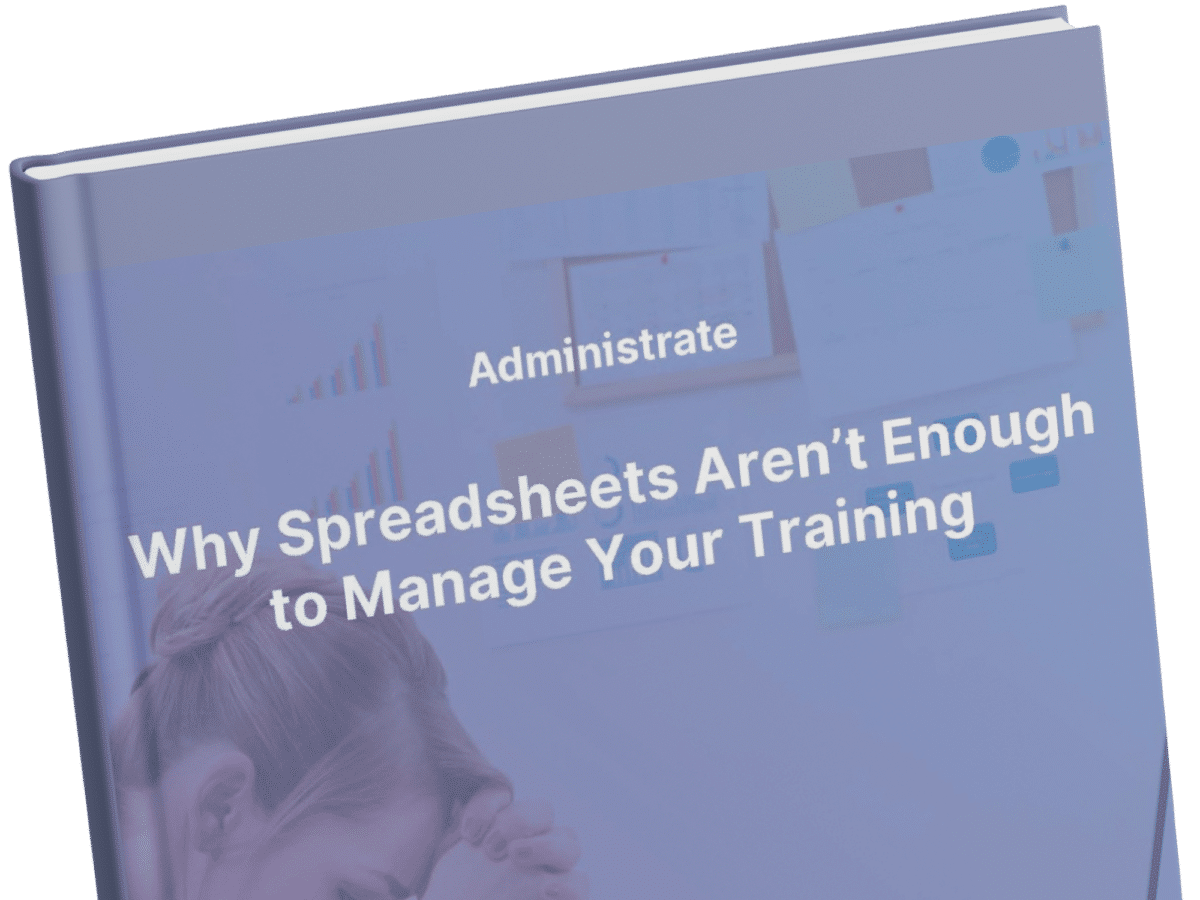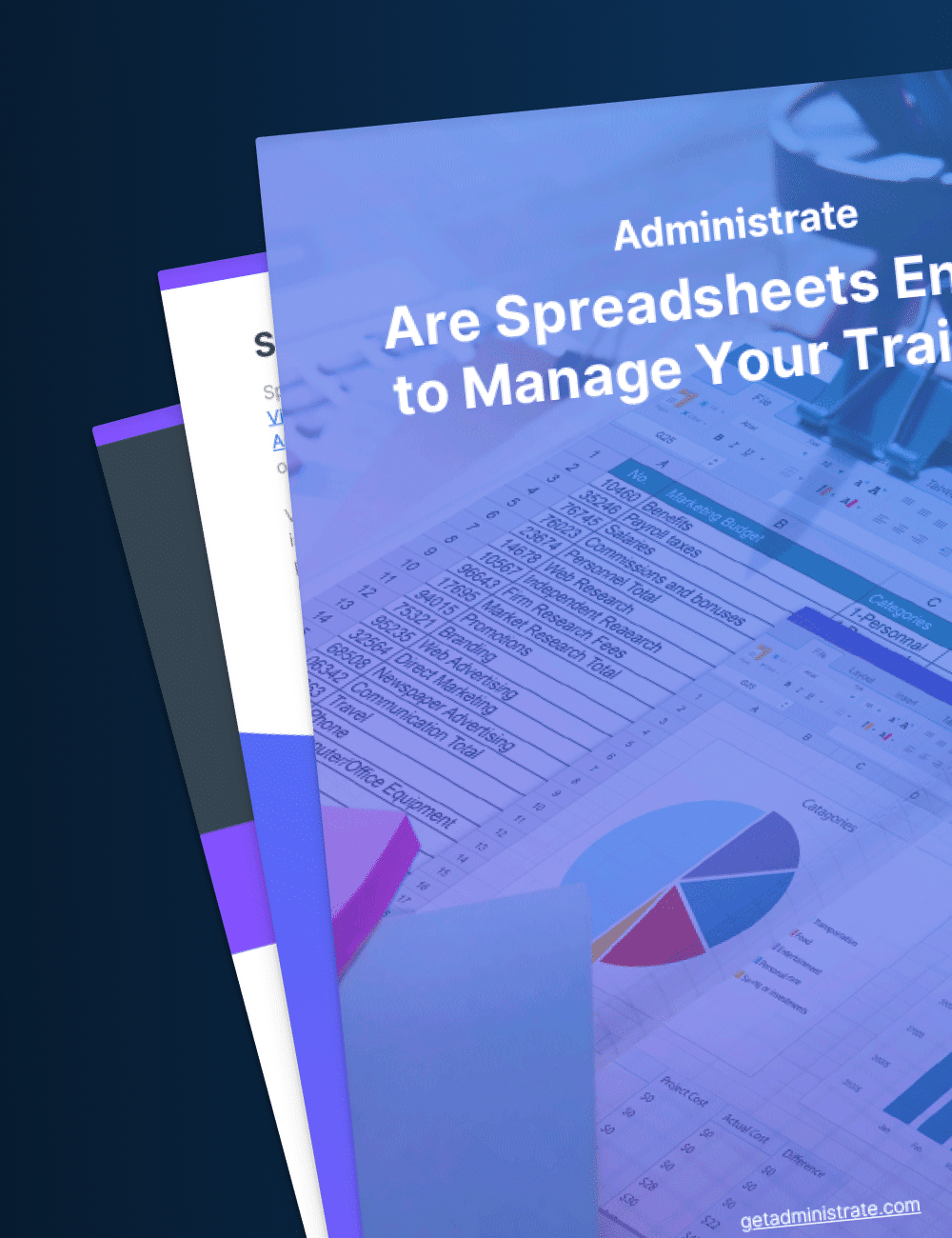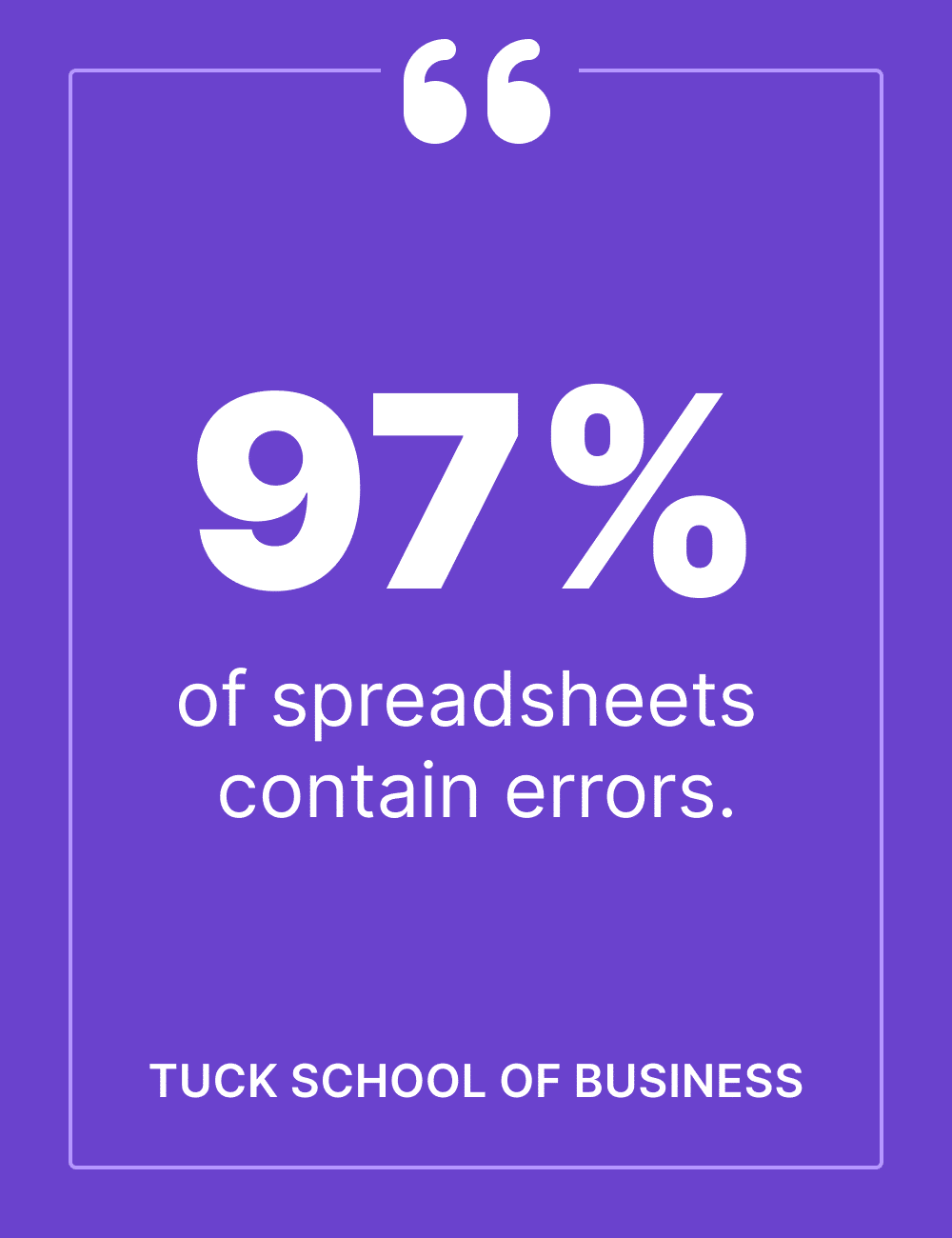Spreadsheets can't scale to meet modern training operations needs
Here’s why leading training teams need more than spreadsheets to manage training operations.

Learn why spreadsheets limit training operations
The manual effort required to manage spreadsheets can be a barrier to scaling training operations.
Spreadsheets are valuable tools for any training team, but they do have inherent risks. Errors are common, and the manual effort it takes to manage spreadsheets grows rapidly. On top of all that, they only house your training data. They can not provide context or decision analytics.
But: feeling spreadsheet pain means you’re on the right path
Training teams that are pushing the limits of spreadsheets feel the frustration of trying to scale with slow, disconnected technology. This is a good sign! It means your training program is healthy, but understand the risks of spreadsheets and how to avoid them.
Download the guide to see how you can dramatically reduce your reliance on spreadsheets.
- Learn how spreadsheets can slow your training team.
- Explore how other teams have stopped relying on spreadsheets.
- Understand other training software options that add more value than spreadsheets.
Identify why spreadsheets are barriers
-
Too many errors
Explore why spreadsheets are prone to errors that ultimately poison your data.
-
Too much manual effort
See how other teams have saved hundreds of hours (and their sanity) by reducing spreadsheets.
-
No useful insights
Understand why spreadsheets are just data containers and can not provide real insight.









